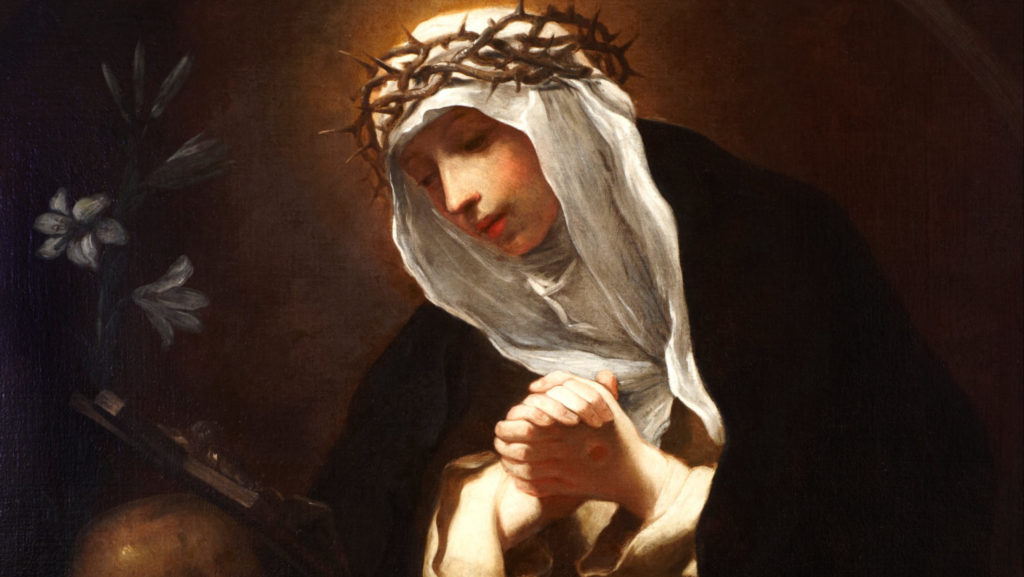One day a few years ago, I told my husband with frank sincerity that I was tired of hearing him tell me, “Jesus loves you.” The phrase rang trite and superficial to my ears. I wanted and needed something deeper and more substantial, having become complacent with the story of how Jesus died on the cross for my sins.
With equal frankness, he countered, “You have a hard time with love. You can’t believe that Jesus loves you. Repent and believe the Gospel.”
Not only did I want to “move on” from the fundamental message of the Gospel, but thought doing so was a sign of Christian maturity. How have I gotten here? I diagnosed myself with “Gospel amnesia.” I had forgotten the goodness of the good news.
Gradually, through my conversion to Catholicism, I started to understand proper self-love and to accept how God loves not only everyone, but me, personally.
God’s love for me did not require me to hate myself, but rather to love myself properly. The key to a real self-love, as I was to learn from reading the works of St. Catherine of Siena, is to humbly accept God’s love and mercy.
I was introduced to the 14th-century Italian mystic and writer when I first began to study the Catholic faith, but in 2018 I delved into one of her major works, entitled “The Dialogue of St. Catherine of Siena: A Conversation with God on Living Your Spiritual Life to the Fullest” (TAN Books, $12.95), which is a conversation between Catherine and God the Father.
Catherine doesn’t write about mercy with banality. Her language is gory and raw.
In this conversation, Catherine says to God, “You cannot resist giving [mercy] to whoever asks you for it. ... And for what are they asking? For the blood of this door, Your Truth. In this blood you have washed away iniquity and drained the pus of Adam’s sin. His blood is ours because you have made of it a bath for us, and you neither can nor will refuse it to those who ask it of you in truth.”
God responds by saying that he doesn’t want Catherine to think about her individual sins without thinking also of his mercy. “Otherwise she will only be confounded. For if self-knowledge and the thought of sin are not seasoned with remembrance of the blood and hope for mercy, the result is bound to be confusion.”
He warns that confusion can easily lead to despair when one considers “their sinfulness greater than God’s mercy.”
This was a habit I had lived with for years. It may sound paradoxical, but dwelling on my sin was a form of pride — and pride works not just against humility, but love.
The cure for “Gospel amnesia” is to remember that God’s love for us surpasses every occasion of our sin.
Elsewhere in “The Dialogue,” God tells Catherine that by his divine charity he left us an “ongoing baptism of blood accessible by heartfelt contrition and a holy confession.” There is a lot of blood in St. Catherine’s work, and it’s powerful: Christ’s blood is to be honored, treasured and revered; it baptizes; it bears fruit; it bathes; it washes; it blesses; it is power; it is love.

This “ongoing baptism of blood” the Lord speaks of is the sacrament of reconciliation, and the fruit of the blood is absolution and reconciliation with God.
Even though over the years I became more self-aware, better understood the root of my sins, and embraced the confessional with docility, I experienced that “confusion” God warned her about. That is because I have not continuously developed the habit of “seasoning” my self-knowledge with Christ’s blood and mercy.
My husband was right all those years ago when he told me that I could not accept Jesus’ love, when he called on me to repent and believe the Gospel. I wanted to understand God, and to obey him, but what I did for so long was use theology as a way to avoid dealing with what blood and mercy truly meant — love. I had no problem with studying, but I couldn’t face it at the level of the heart.
He meant that Jesus loved me. I understood it intellectually, I accepted it as a faith truth, I believed in God and confessed the creed —but what I felt was my sin, failure, weakness, worthlessness. I could not grasp love. Because I could not grasp love, I cheapened it, and by cheapening love, I cheapened the Gospel.
For Catherine, only through God’s mercy can we do anything, especially love. “O mercy! My heart is engulfed with the thought of you! For wherever I turn my thoughts I find nothing but mercy!”
I firmly believe that every woman who is struggling to see herself as God sees her should befriend this great saint as her friend. For that matter, she’s a good guide for men, too.
As the Church celebrates Catherine April 29, may we see God’s mercy in our lives and surrender to it, so that all of our love may be rightly ordered, including love for ourselves.

